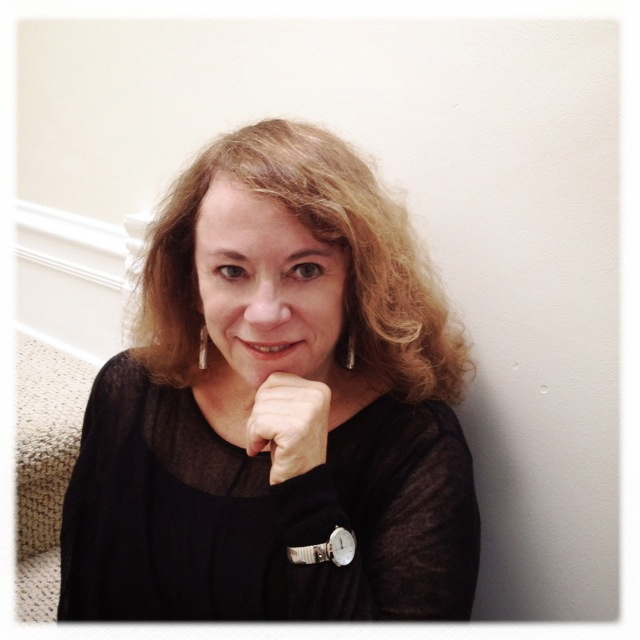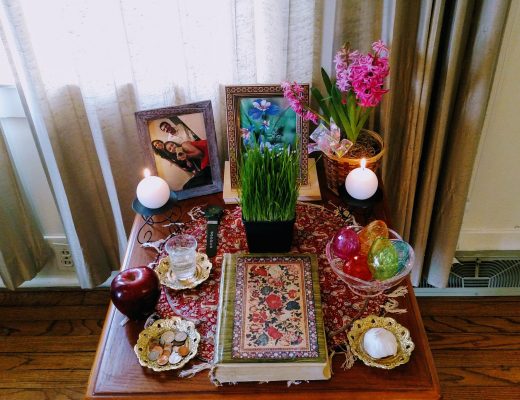Theoretically, I have always viewed naming as fun, an honor. You get to help define a person, place or thing by providing the word that will distinguish that being or object from all others. You get to put your creativity on display.
In reality, I find naming stressful—starting with my own name. No, I didn’t name myself, but I have carried my first name (which elicits a question or a comment almost every time I am introduced) and shaped it by adding or dropping nicknames, returning to my first formal name in my twenties, and adding last names along with marriages. When I am asked for my name at a restaurant, I often give my more ubiquitous middle name, “Mary,” thereby avoiding the requests for spelling or the comments about garnets. Of course, I usually forget to follow the hostess when she calls out that my table is ready. Who is Mary, I wonder, looking around at the others in line?
With the creation of a new magazine, we wanted a name that was distinctive, not unclear or too difficult to pronounce, yet somehow defined the type of writing we wanted to publish. Because we wanted this magazine to be inclusive—contain an array of nonfiction forms, established and emerging writers, including some students—we ran a naming contest. What could be more Democratic? Seeing the box in the halls of Columbia College reminded me of those shoeboxes with slits on the top that we used to decorate in grade school for Valentine’s Day. Of course, the boxes also inspired minor trepidation. Anyone could offer suggestions. No college is short of cynical pot-stirrers. But for some reason, most of suggestions seemed to be genuine and thoughtful. Maybe everyone saw naming as big of a deal as I did—of course, we also offered a cash prize to the winning student choice, regardless of whether that name was used or not.
To name a few of the suggestions:
Real. Words as Truth. Gray Market. The True Story. Behind the Pen. Pulse of the Pen. The Idealist. Untitled. A Monstrous Child. The Real. Abrade. Attempt. Transgress. Blossomed. Palms. Footnotes. Lumen. Parenthetical.
We had a face-to-face meeting for editors and interested nonfiction faculty to discuss the names but only a few of us could attend so we resorted to emails.
The stream stretched down my monitor screen.
“Too long.” “Already taken.” “Too obscure.” “Too literal.” Blah, Blah, Blah (I think that was actually a suggestion as well, Blah, Blah, Blah so I guess there was some cynicism). Eventually, we chose a student suggestion, and awarded the prize. It was a good, solid name, clever even, but none of us were as excited as we wanted to be.
Why couldn’t there be magazine naming books, the way there were for babies? (Though I find it hard to believe that many people actually find names in those books—that said, my grandmother reportedly named my father from a name she found in a phone book.) When I was a kid, I named my dolls based on how they looked. Blondie. Tiny. Maybe we could do that? Call it Magazine? Words? Blah, Blah, Blah.
Part of my childhood pleasure at getting a new pet was the fact that I was allowed to name him or her. Yet, when I think back, I realize I wasn’t very good at it. Using the same principle I did with my dolls, I called my first dog Mittens (he had white paws). Other kids always said, “Isn’t Mittens supposed to be a cat’s name?” I felt such a failure—my dog going through life with a cat’s name.
The magazine naming process continued for weeks. Before we could order stationary or begin the multitude of things needed before starting a magazine, we needed a name. How could we solicit anyone without one? Set up a website or a submissions manager? Advertise?
Why was this so hard? We were all writers, creative people.
When I was writing one of the dozens of e-mails, a word on the back of a grammar handbook on my computer stand popped out at me—punctuate. Alone, by itself, it didn’t sound like a grammatical tool. It seemed to have more meaning. Also, more power, partly from the P sound. Power! Punk! Pop! I threw the name into the e-mail stream.
Finally, the e-mails started to have some energy.
Re’Lynn Hansen, who was going to co-edit the journal with me, found some lovely quotations.
“Hundreds of butterflies flitted in and out of sight like short-lived punctuation marks in a stream of consciousness without beginning or end.” – Haruki Murakami
“A book is an arrangement of twenty-six phonetic symbols, ten numerals, and about eight punctuation marks, and people can cast their eyes over these and envision the eruption of Mount Vesuvius or the Battle of Waterloo.” –Kurt Vonnegat
Jenny Boully said, “I like Punctuate because of its nearness to *punctum* (think Barthes) and also how we punctuate a text when both writing and reading (also think Barthes’ starring or studding of a text as we read). Punctuate is what we do to make a point, yet it is also what we do to puncture–something that essays do in tandem, that is, make a point only to undo it.”
I looked it up in multiple places.
Too occur periodically…to stress or emphasize…from the Medieval Latin, punctuare to prick…to puncture (The Free Dictionary by Farlex)
What I liked best about arriving at the name, Punctuate, was how finding this one word seemed much like collaborative writing. Generating ideas. Creating. Shaping. Revising. Staying at something until it evolved into something else, a single word that seemed easy and almost inevitable, but could not have come into being without all the work that preceded it.
Pause. Parenthesize. Punctuate. Period.
Garnett Kilberg Cohen, editor


